44 - Vince, the Game Designer
I play a lot of board games. That’s not a secret. But I also spent some time thinking about how to design games as well! It’s a really fun creative outlet, especially while we have so much more time at home during iso.
Here’s a glimpse at some of the designs I’ve had from my notebook across the past few years:
Prison Break
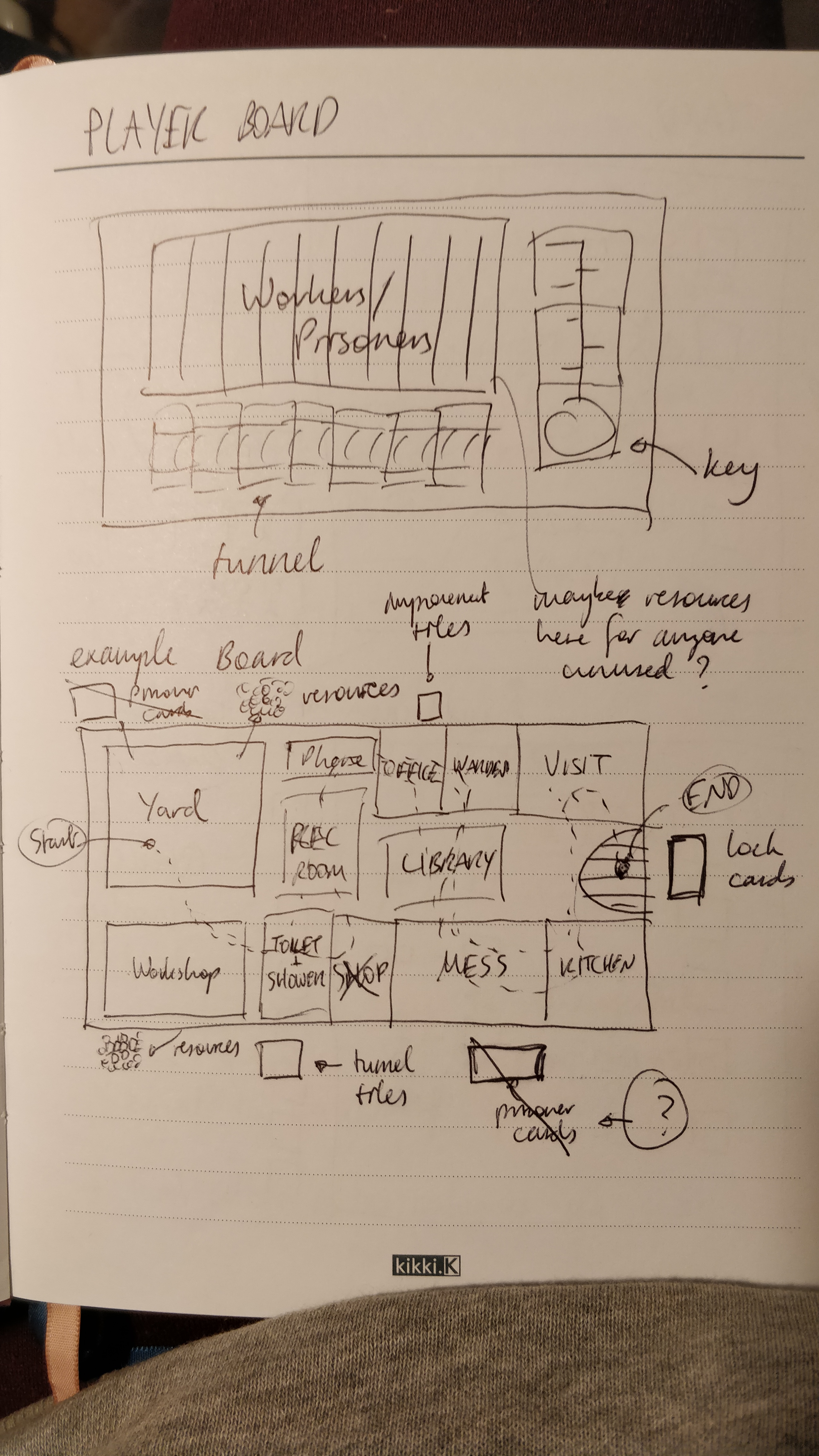
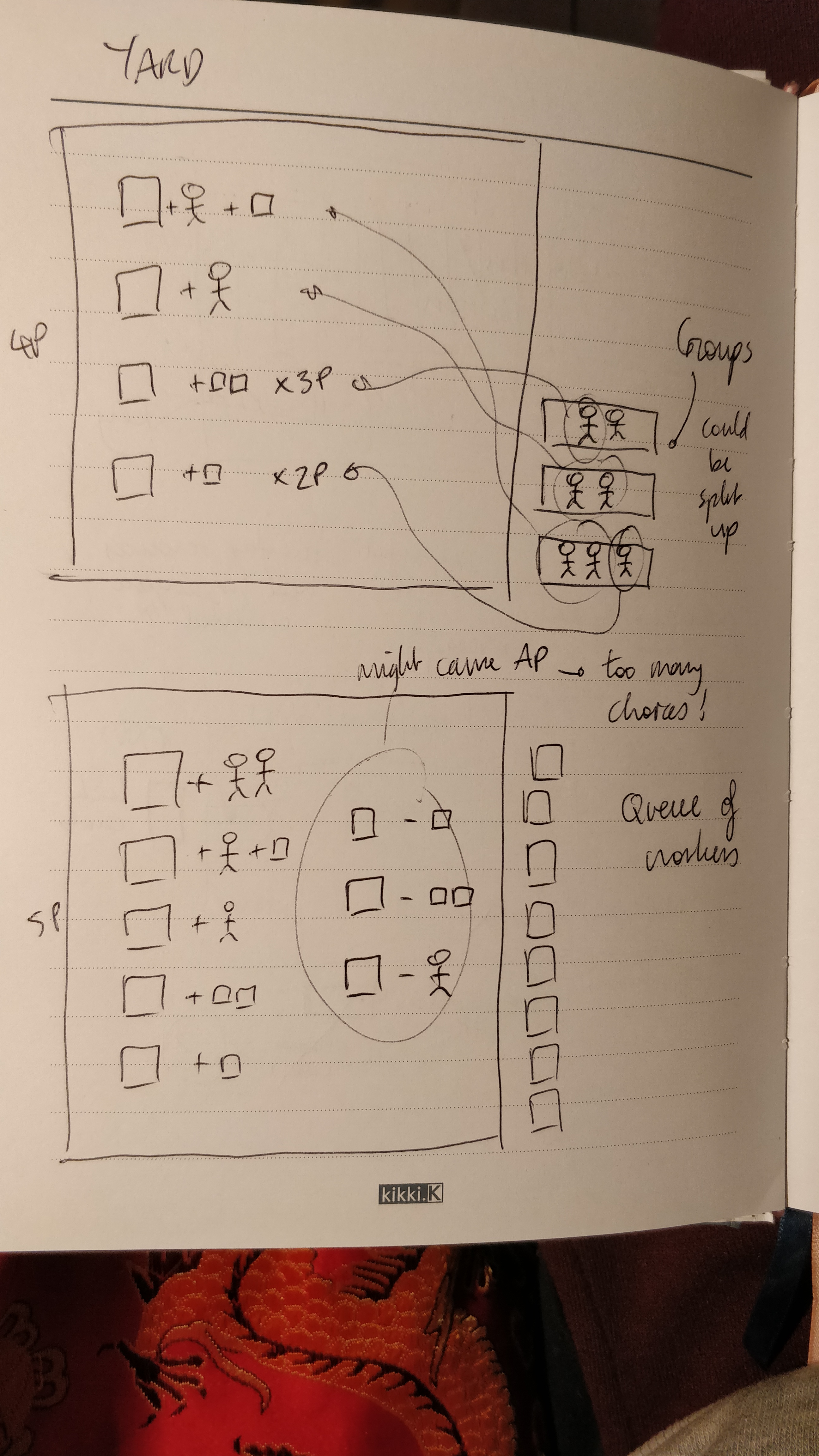
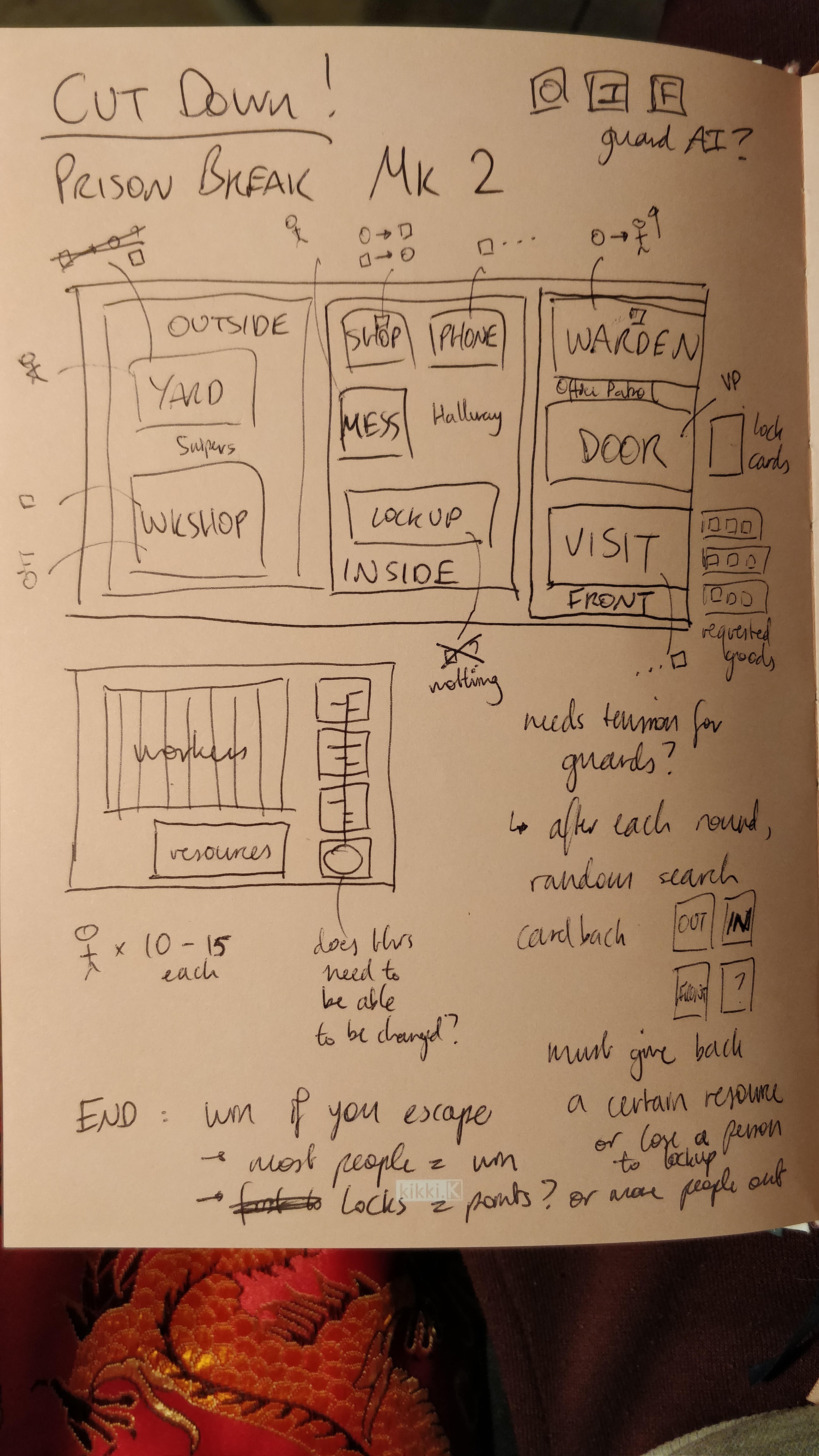
The one that started them all! I had this idea about a prison break board game, which used a mechanic of group worker placement. You would ‘bid’ a number of your gang to go to a particular location, and if you had the most people there, you could use the benefit of that action (like…stealing a spoon to help you break out. Or recruiting more people to your gang). I had built up a raft of different rooms, and their effects, and the stages of the game in the design, and iterated it across a number of…I dunno, weeks? months?
It took inspiration from games such as Keyflower, where you bid with workers, as well as Kolejka, a fascinating game about lining up in communist Poland. Actually looks so interesting (and what a theme!); I’ve never played it because it’s out of print but it looks really fun
The key to any game is to find the central loop - what’s fun about the game? In this one, I built the game around the bidding aspect of the prisoners in your gang, but then tried to build in systems that were a bit too random - like crafting keys to get out of the prison, or people bringing in contraband for you. A bit too complicated I think…
Fence Push
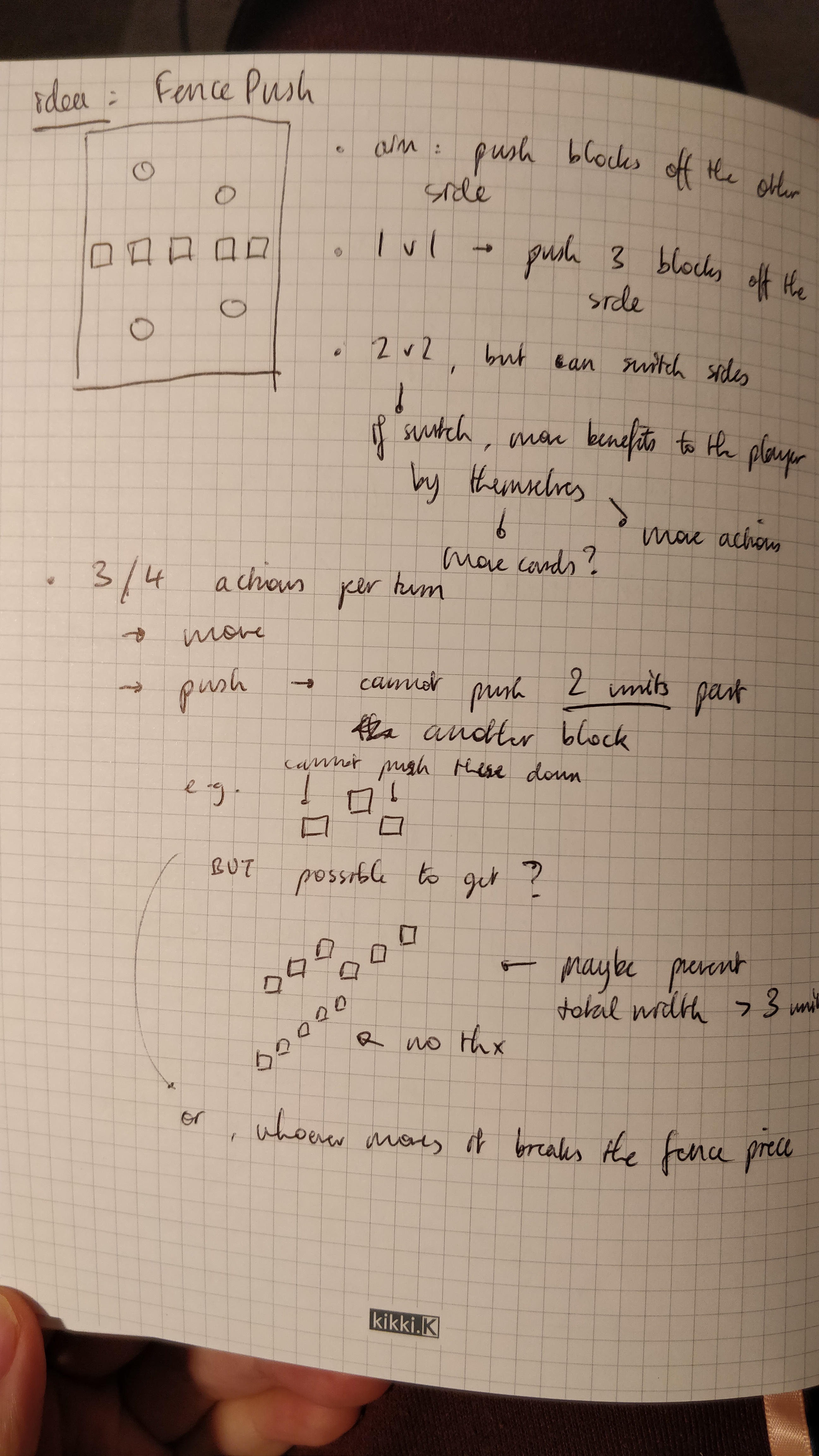
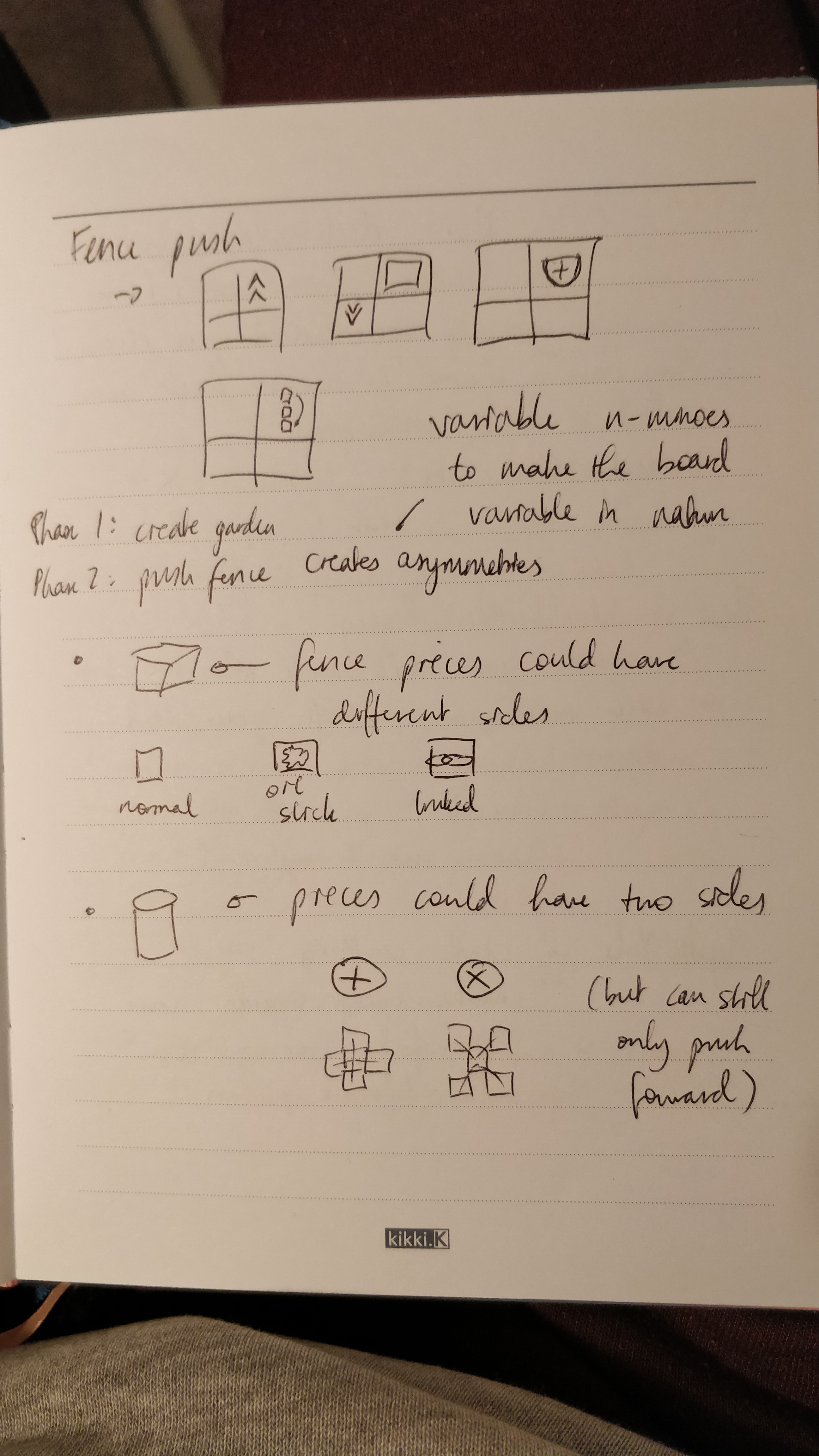
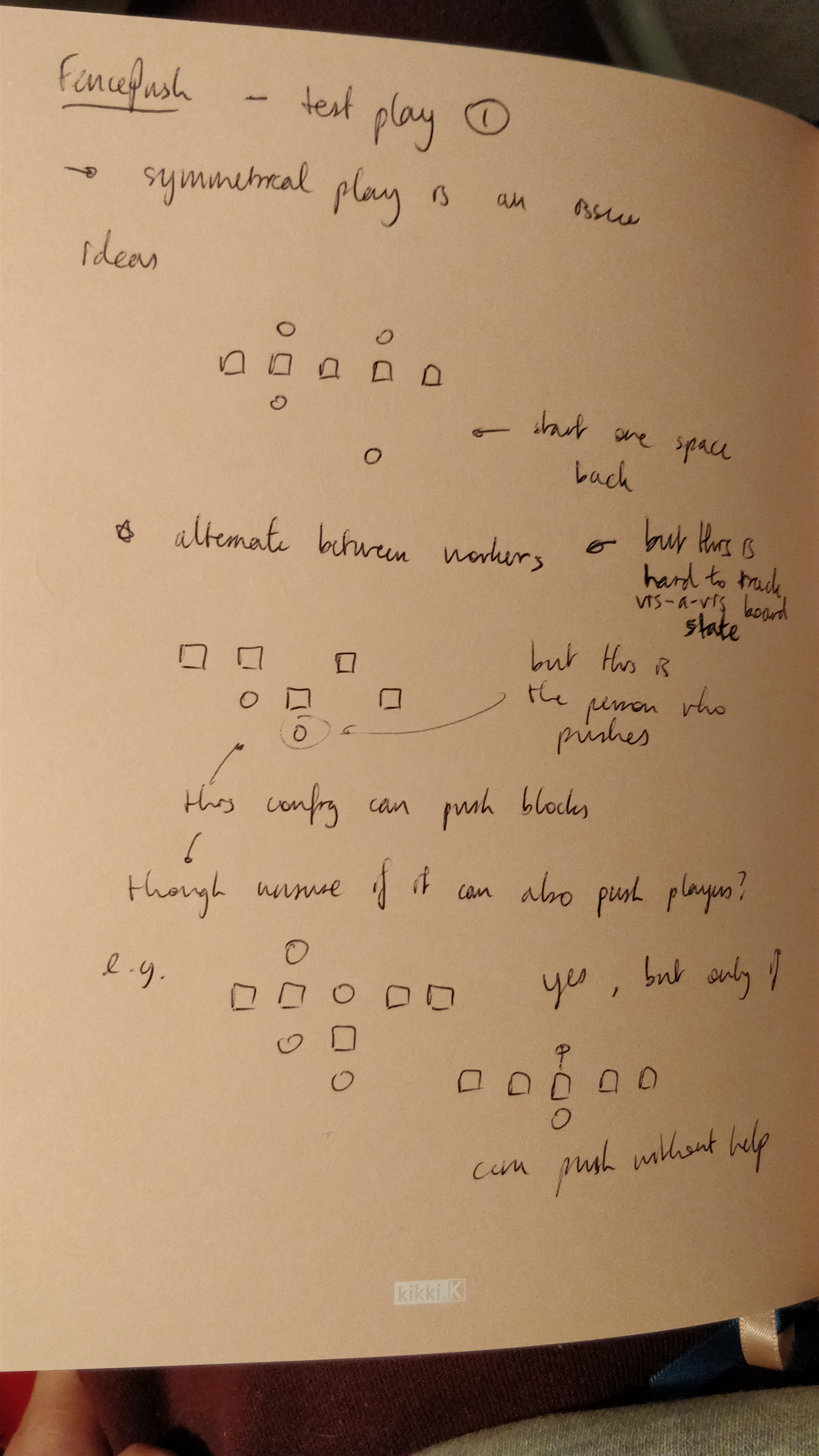
My first attempt at an abstract game - I had already done a wide search of different abstract games and how they played. Chess, I’ve always been interested in, but there were fox and goose games, tafl games (I now own Hnefatafl, an asymmetric Viking chess game where you play as attacker and defender, creating intriguing strategies), connection games, stacking games, as well as the relatively modern GIPF series of games. I also bought a game called Mixtour from this abstract game maker in Germany - Gerhards Spiel und Design - ordering it to be sent to my sister’s place in the UK from Germany so that it would arrive when I went to visit her - probably the most unique game I own.
Fence Push was going to be a 2 player game where you fought over the fence (it’s first name was called Adverse Possession)- pushing it back and forward to try and gain as much territory as possible. I was well on the way to playtesting it and coming up with a fun time, but another lesson I learnt was simulation vs. games. A simulation is something that just…plays itself, with nearly no player interaction. A game is one where the players choices actually mean something.
In the game, it was too clear as to what the next best move was, which kind of took the agency out of the players hands, and turned the game into more of a simulation. I stumbled upon an answer - using an anchor piece to change up the strategy, but then found that someone had already designed and published a game JUST LIKE IT - Pushfight. Ah well.
Ideas are cheap. Execution is hard.
Small Gods
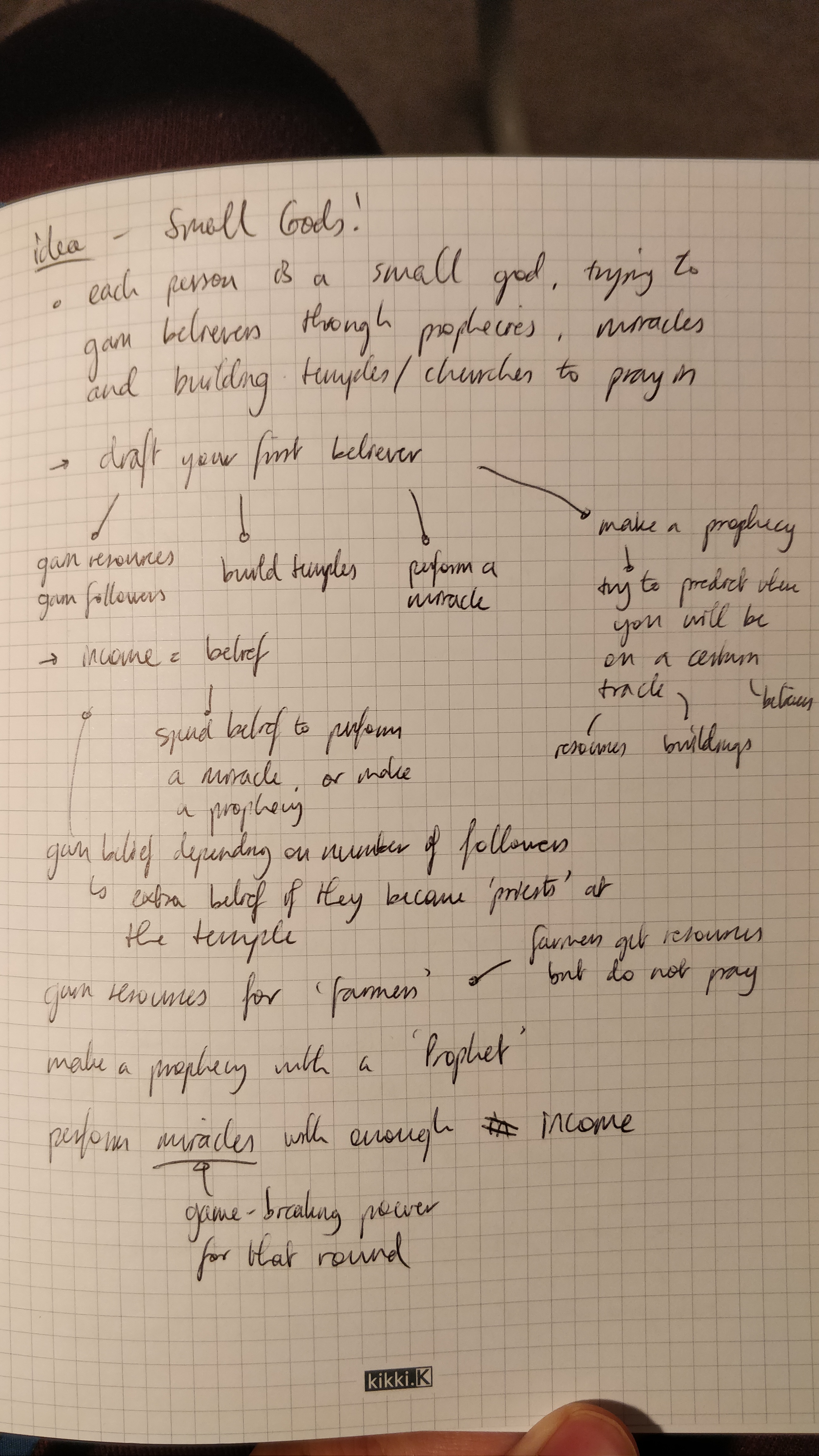
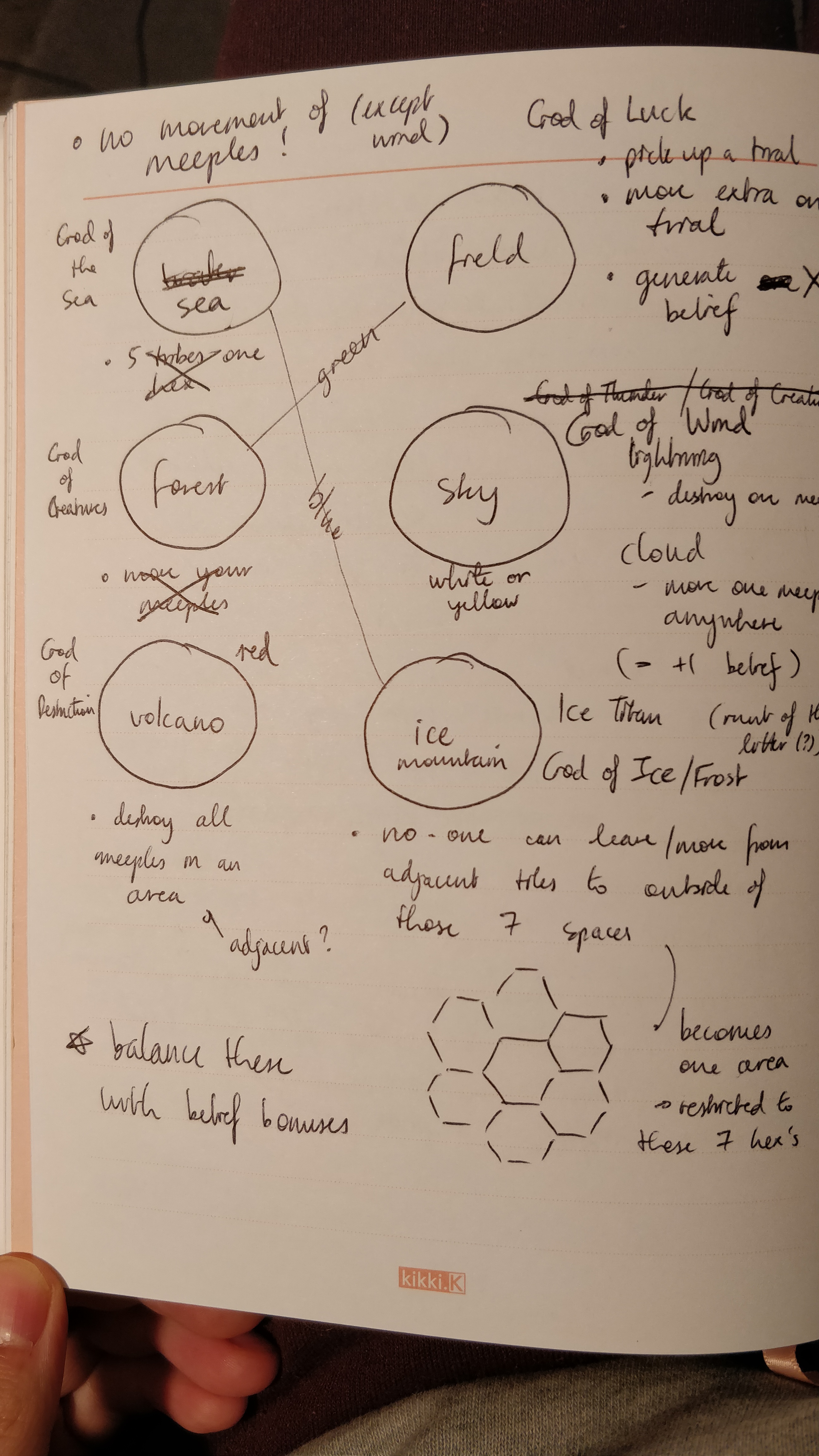
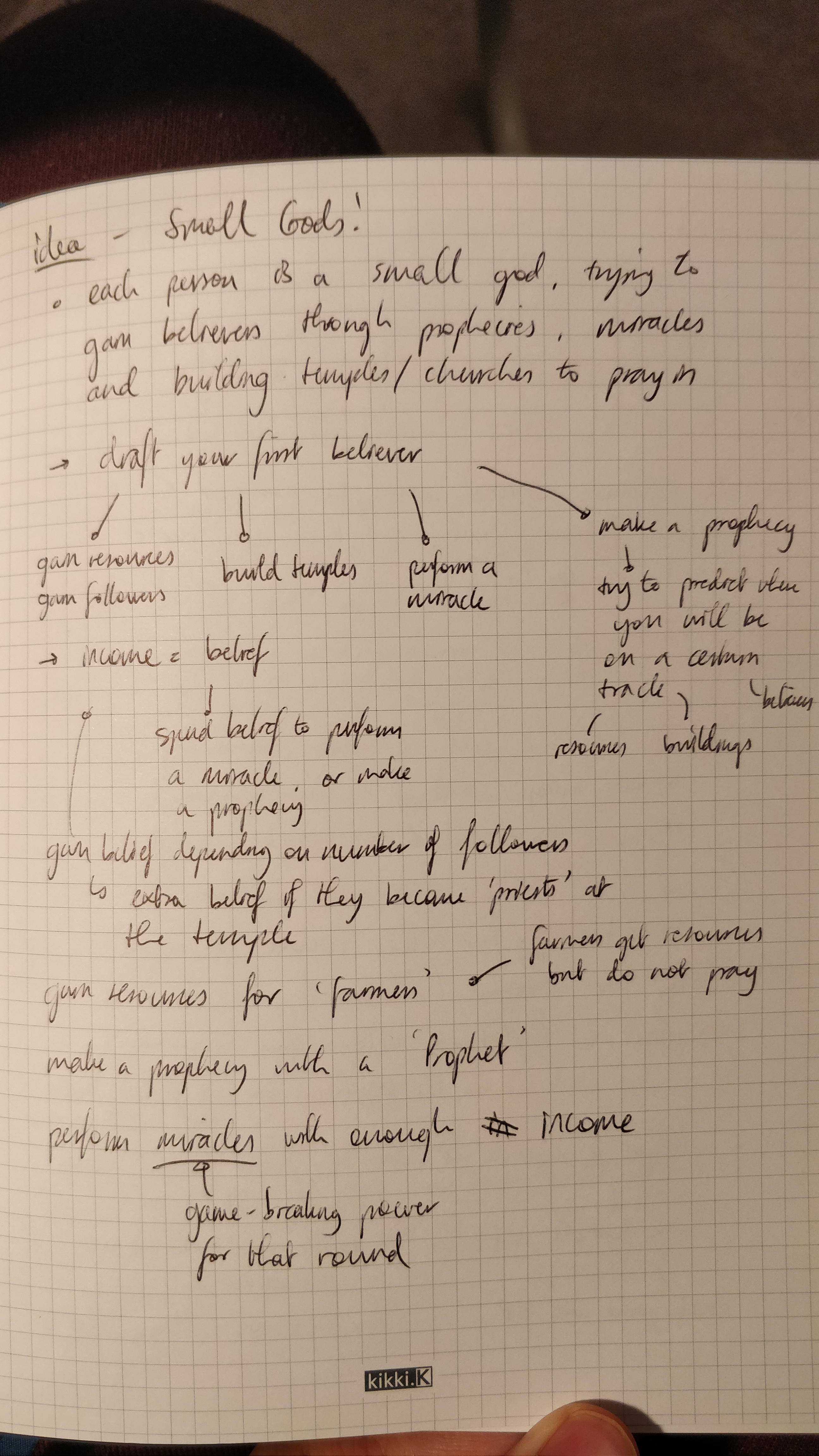
One of my favourite designs, loosely inspired by Terry Pratchett’s book of the same name. His book was a hilarious exploration into belief - what causes it, and how does it grow? In the book, he features the concept of ‘small gods’, who through various reasons have lost all their followers and the belief that sustains their power.
I wanted to turn that into a game.
You’d slowly gain followers, using them to grow civilisations, explore land, recruit other followers, sacrifice for you, and perform miracles. Each different system allowed you to get income, or belief, and use that to be able to recruit more followers to do more actions to grow your civilisation etc. etc.
I was really excited about this idea - there was so much design space to look into and no other games on the market had really gone into this idea.
Alas, trying to build the detail was difficult. I got stuck early, trying to work out how you would design the drafting mechanic for your workers, and then what the temple would look like. The lesson from this one I was trying to apply was focus on the smallest, testable part of your design, and try that first. I built a prototype of a temple (see below) and played a prototype with some friends. But then life got in the way and I stopped. Recently there has been a game like it called Cult that came out on Kickstarter and did okay. It was still fun to think about the game though!
Druids
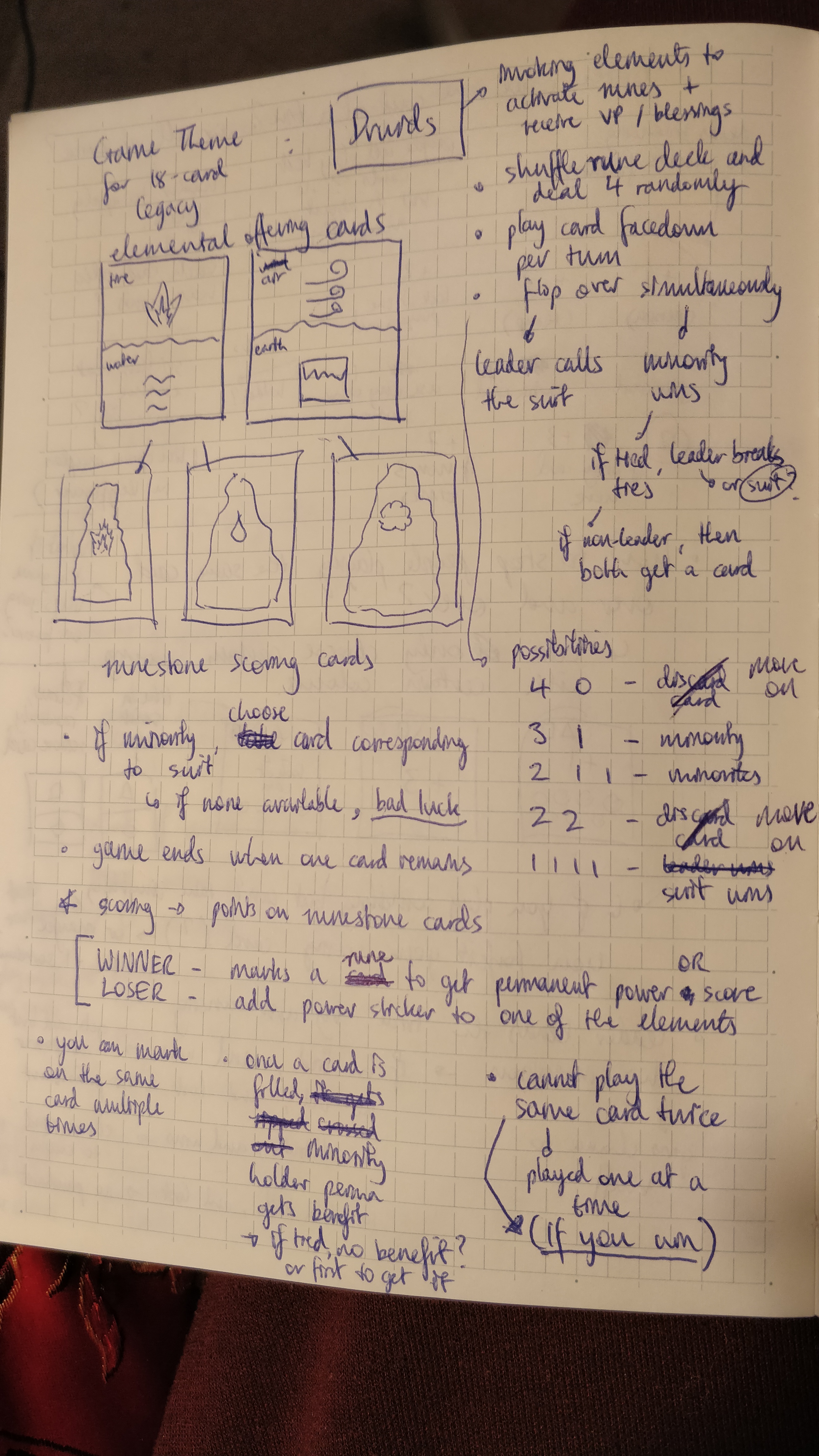
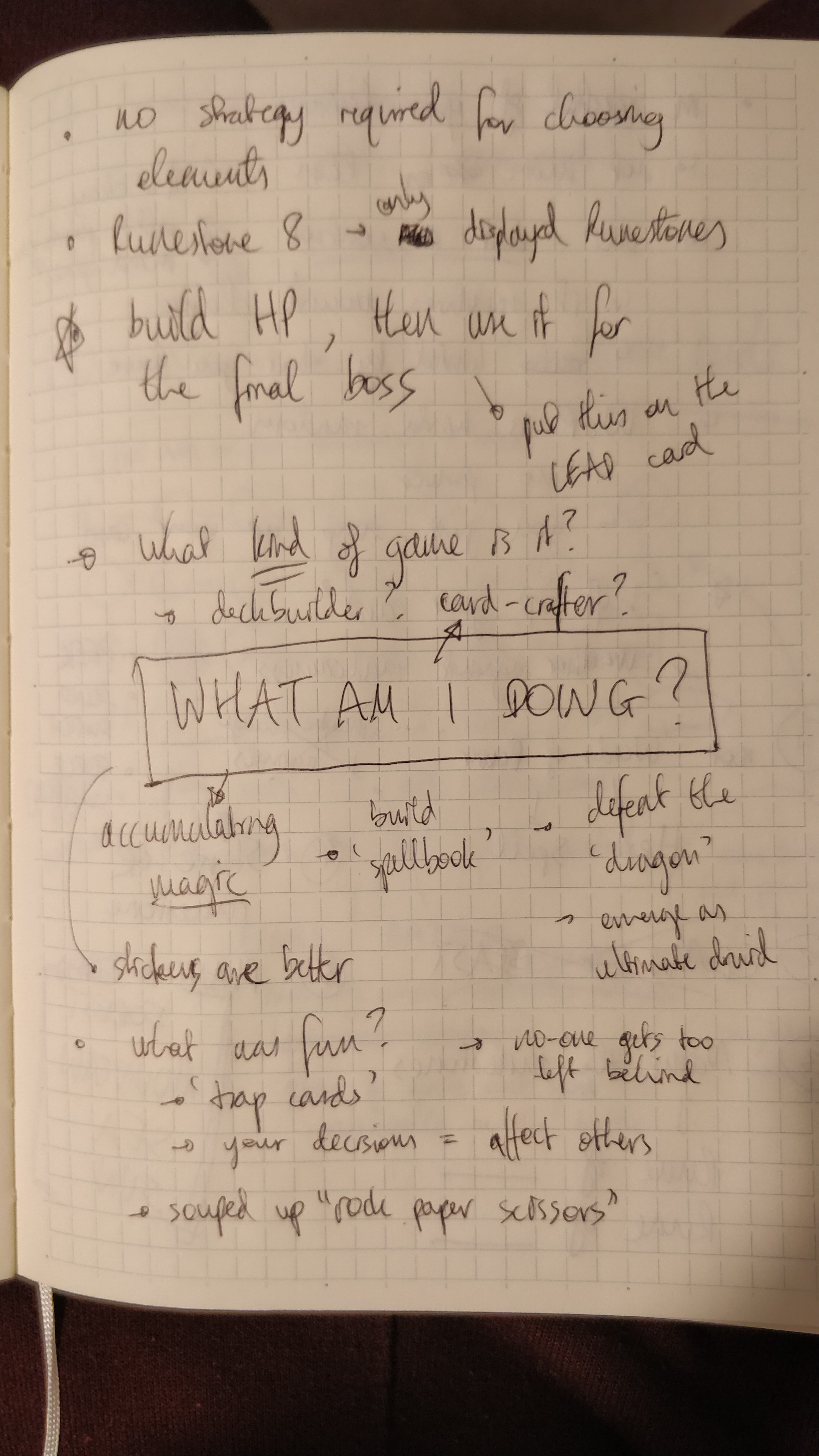
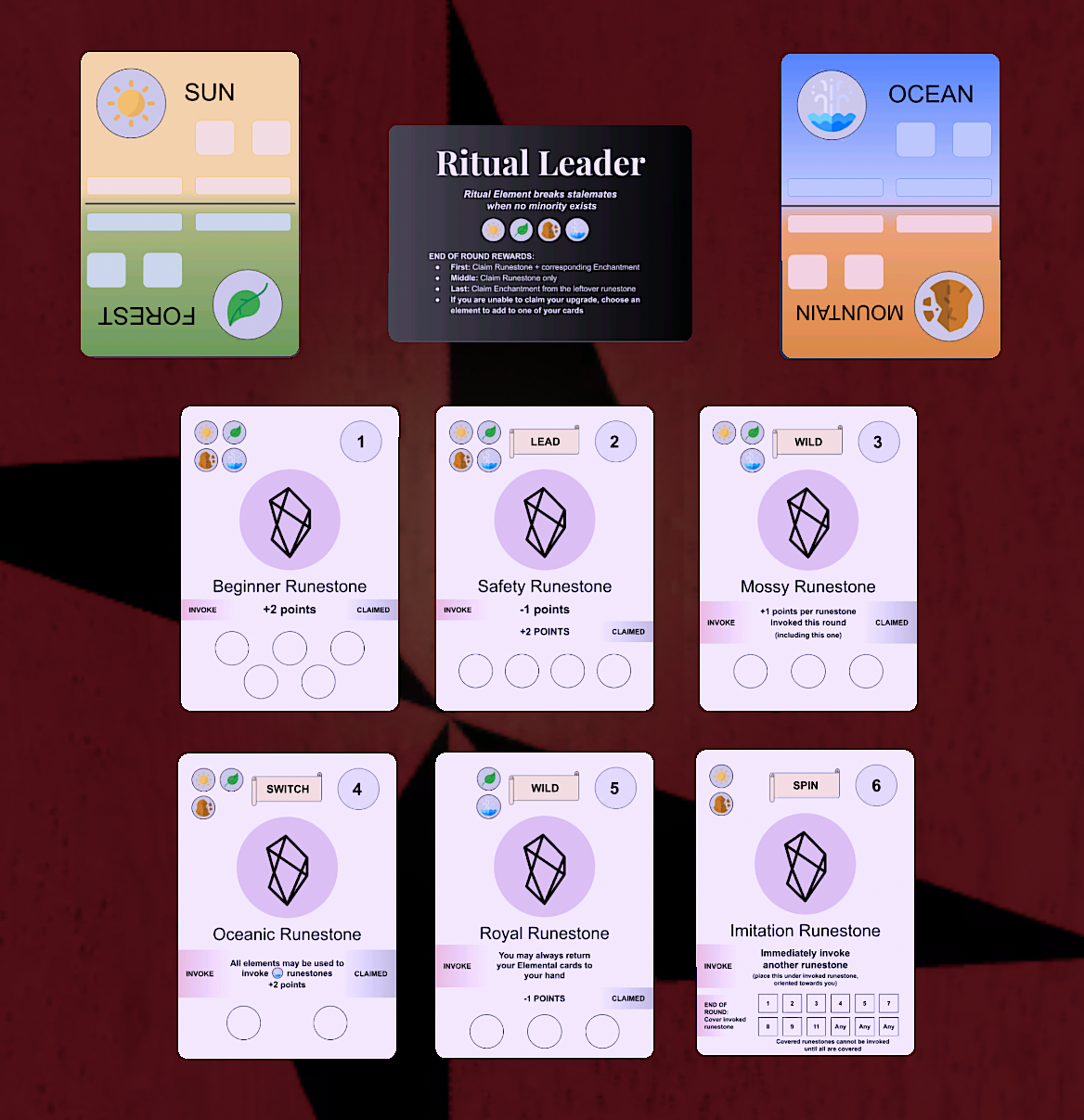
This is the closest I’ve come to fully building a real game, sparked by a competition to design an 18-card legacy game. For those who don’t know, a legacy game is a board game that has permanent changes to the game, either of the rules, the components, or the ways of playing the game.
Some of the most popular games of recent years, like Pandemic Legacy, are fantastically designed games. In this way, you can kind of tell a narrative about the game, and you should get something unique at the end of it based on the decisions you’ve made.
I made this game after thinking a lot about what a legacy game should be:
-
It has to be a fun game without the legacy aspect
-
Each legacy aspect should uncover new mechanics slowly
-
The lack of components (18 cards!!) meant some would need to be shared
-
Permanent changes should still allow for a catchup mechanic (otherrwise people who are ahead just keep steaming ahead - it’s not fun for everyone else)
-
There have to be moments of ‘fiyero‘ - that feeling you get when you’ve done something really cool after a lot of planning
-
Once you’re done with the game, you should be able to keep playing it, as a unique version of the game that only your group has.
I prototyped the game on Tabletop Simulator and tested it with a few people, iterating it over the course of a week and a half (I left it late okay!). It was super fun to make, and I’m going to try and get it finished (art, physical box etc.).
I’ll let you know how I go in the competition!
Link to rulebook and components here if you’re interested!
Apologies - know this piece is a bit of a slog, but it just got a bit away from me, y’know?
Chat soon :)
✔️ Real Life Recommendations
-
Ludology podcast - if anything here interested you, this game podcast might be of interest! Prominent board game designers (there have been a couple of hosts over the years) deconstructing games, interviewing other game designers and talking game concepts and mechanics. Really interesting when I was into this kind of thing!
-
Rhodia Heritage Collection - these book-bound notebooks have the great paper that Rhodia is known for, and also have my favourite feature in any notebook - it lies flat without needing any weighting! Other notebooks, you have to break the spine of the notebook, but this one is just right. Mmmm, beautiful stationery.
🚌 Adventures on the Information Super-Highway
-
Cardboard Edison - It’s a bit of link spam, but it’s a stream of really interesting game design links. I got a lot of really cool ideas from it about incorporating randomness, what ‘fun’ means for a game, and how to craft choices for players. Fascinating!
-
Kickstarter Tabletop Games - I spend far too much time and money looking for the newest, cool games here - Kickstarter is perfect for boardgames because you can show a prototype, see how the game plays, and decide whether it’ll be fun, without the creator needing to invest too much into it. It’s become a bit more…commercial, but that’s fine. Always fun to see new games and new mechanics :)
-
Stonemaier Games Design Blog - learn from the best! Wingspan, published by Stonemaier Games, has been one of the best games in recent times - it swept nearly every board game award in the past year, and Jamey Stegmaier (the publisher) has been very generous with his time and energy in helping the next generation of game designers get off the ground. A really good resource for board game design!
🌱 The Calathea Corner
Dark, mysterious, beautiful. I’ll probably be discontinuing this segment soon…unless I get another plant? Feleafcia is still chilly but I think getting healthier every day!
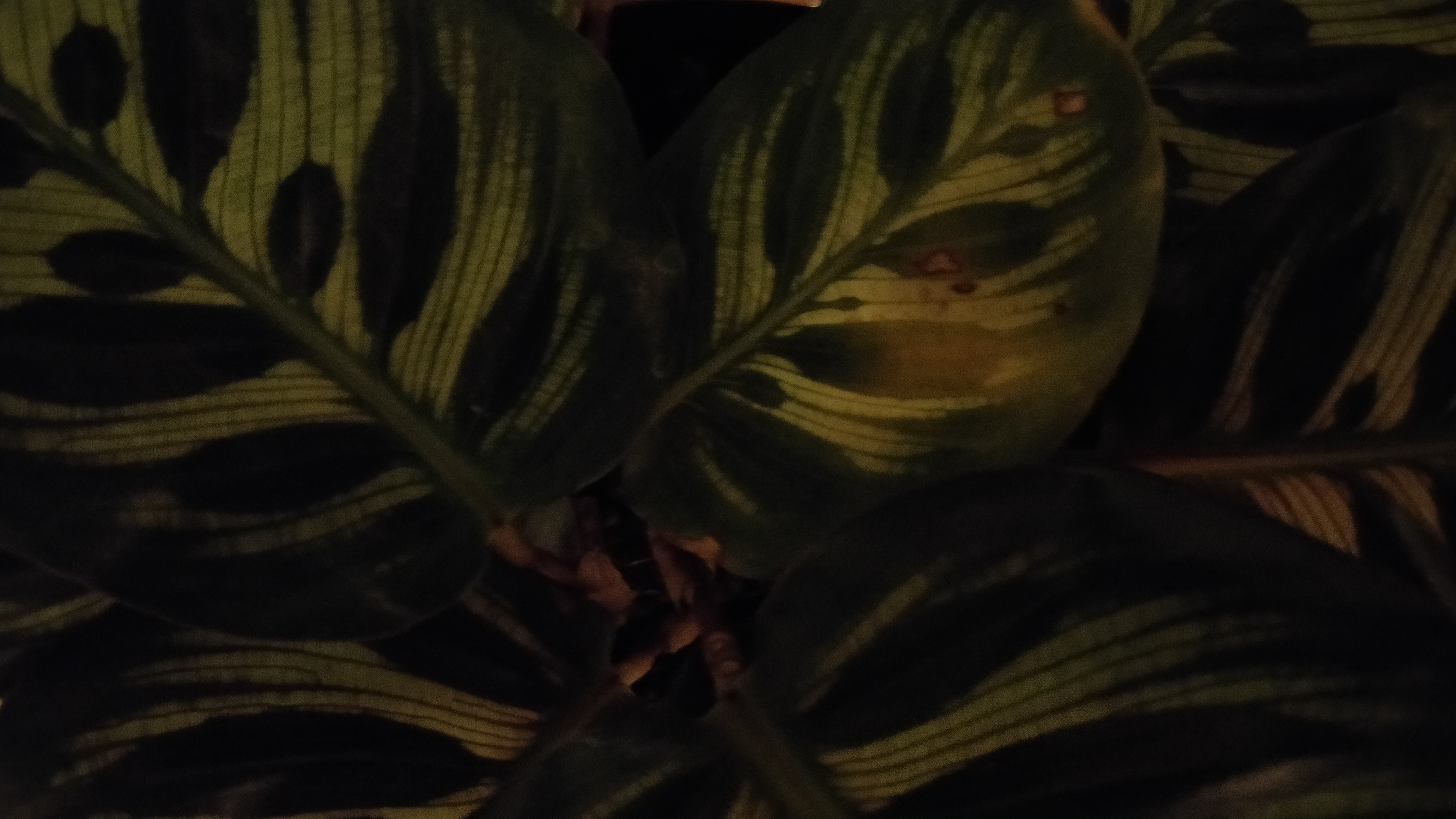
Add a comment: